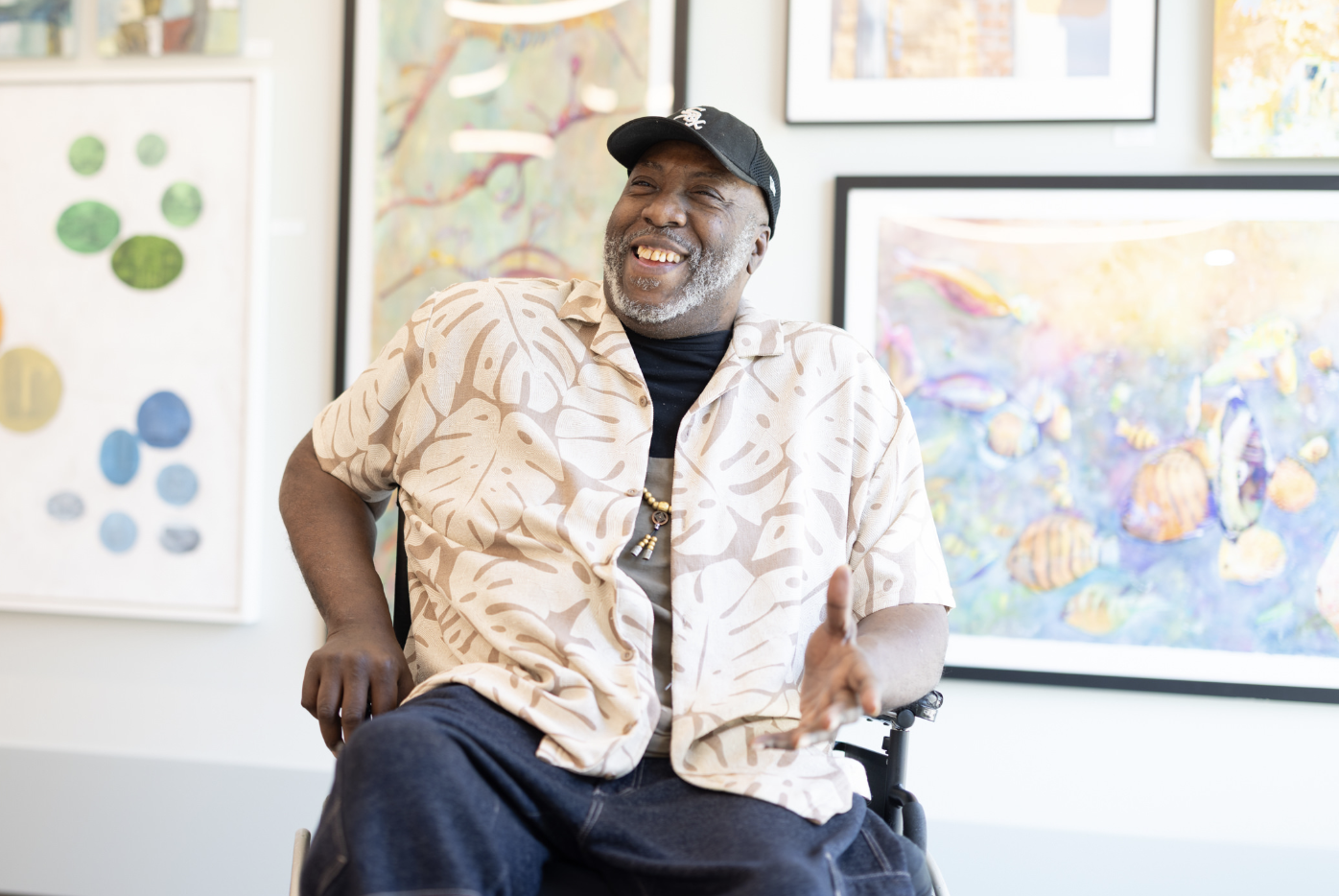Life After the Game: Mike Williams’ Story
Robin Subar Photography
Mike Williams has always been larger than life. Growing up in Chicago, he was the kid who never stopped playing basketball. His talent took him from Bradley University all the way to the NBA, where he played for the Sacramento Kings and the Atlanta Hawks. Basketball gave him discipline, grit, and the belief that if you worked hard enough, anything was possible.
Mike’s mother always told him, “Tell him who’s who. Always play hard, do the right thing, treat people fairly.” That advice stuck with him through every challenge. It became a guiding mentality: work hard, treat people fairly, and never take anything for granted.
On November 29, 2009, everything changed. In a matter of minutes, Mike went from being a strong, independent man to fighting for his life after a devastating injury left him paralyzed. “One moment I was fine,” Mike says quietly, “ten minutes later, I wasn’t.”
During that time, an old high school basketball rival reappeared in his life: Dr. Dan. Once competitors on the court, now Dr. Dan became a lifeline. He guided Mike through critical care and recovery, helping him navigate the medical and emotional challenges of rebuilding his life.
Mike reflects, “We used to battle each other on the court, but now he was the one looking out for me. I realized the lessons my mom taught me: play hard, treat people right, mattered. It’s what made it possible for someone like him to step in and help me when I needed it most.”
The years that followed were some of the hardest of his life. Hospital beds. Nursing homes with no privacy. Infections. Sleepless nights. Days that stretched on with no freedom and no dignity. “You lose yourself in those places,” Mike remembers. “You don’t get to choose what you eat, when you sleep, or even who comes into your room. You’re alive, but you’re not really living.”
Eventually, he moved in with his mother, who cared for him the best she could. But Mike was a grown adult and living in his childhood home again felt suffocating. “I’d be in the kitchen, cooking eggs with my mom watching over me, and I’d think, this can’t be the rest of my life.”
That’s when he found OTR.
From the moment he walked through the doors, everything felt different. At OTR, Mike had his own apartment. His own schedule. A place where he could breathe. He could cook his own meals, go outside when he wanted, watch a game with friends, or just sit quietly in his own space. Simple things most of us take for granted became treasures.
“When I moved in here, it felt fantastic. I finally had my life back. I was free to do my own thing.”
Today, Mike’s body carries the weight of 15 years of pain, but his spirit is grateful, grounded, and proud. He knows how easily life can change and how essential communities like OTR are for people facing sudden, life-altering injuries.
“People don’t think about it until it happens to them,” he says. “But if you find yourself in a wheelchair, where do you go? How do you live? Places like OTR are the reason I can still call my life my own. To have a support system like this in a building like this, it’s vital.”
Make a difference. Donate or Join us at the OTR Challenge Tour:


